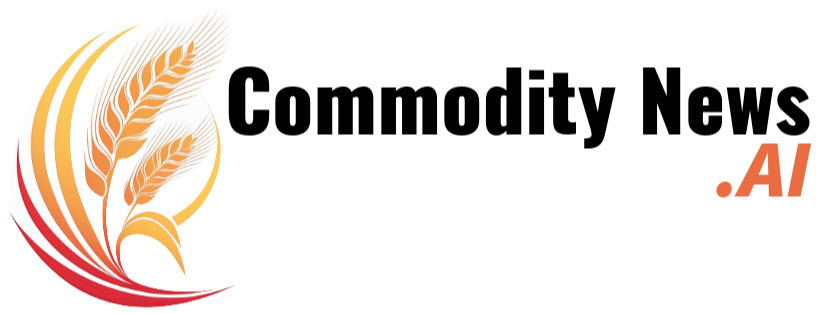Top Stories
Latest News
Teens learn about agriculture drones in Union County
1761140843 from AGNEWS
… fair with the Mobile Precision Agriculture Laboratory, while Pendleton-based Advanced … wide application of uses in agriculture, Leggett said, from spraying herbicides … more for students interested in agriculture, data collection and analysis, while …
Aster price weakness persists at $1.00, raising risk of another capitulation
1761140227 from CryptoNWS
Aster price remains under pressure near the $1 level as persistent weakness below key technical zones increases the probability of another capitulation move toward $0.89. Aster’s (ASTER) price continues to exhibit clear weakness, with the market struggling to reclaim the…
When Teams Stall, Growth Stalls: The Cost of Advisory Staff Underperformance
1761139022 from ADVSRPERSP
Advisory firms are people-driven businesses. Unlike asset managers or product manufacturers, their value is derived from human capital — specifically, the ability of teams to serve clients effectively, deepen relationships, and manage workflows.
Barclays CEO Can’t See Dimon’s Cockroaches, Even After Tricolor
1761138016 from BLOOMBERG
Barclays Plc missed out on the dealmaking and trading boom that US rivals enjoyed in the third quarter, but it still took a similar, unwelcome hit on the failed auto-lender Tricolor of £110 million ($147 million). And yet the UK bank is edging its way towards hitting the profit targets it set for 2026 — even in its laggard investment bank.
Bitcoin Price Prediction Markets Are Flashing a Signal
1761137762 from BTCMAG
Bitcoin Magazine Bitcoin Price Prediction Markets Are Flashing a Signal Bitcoin Price Prediction Markets are flashing a contrarian signal as traders bet on future BTC highs while sentiment indicators point toward fear. This post Bitcoin Price Prediction Markets Are Flashing a Signal first appeared on Bitcoin Magazine and is written by Matt Crosby.
Good News: You Don’t Have to Give Up Eating Beef
1761132607 from BLOOMBERG
These are grim days in the fight against global heating, but every now and then you still stumble across a chance for an easy victory. Two new studies show how, merely with small tweaks to their meat-eating habits, Americans could erase what amounts to the annual greenhouse-gas emissions of a decent-sized industrialized country.
Azerbaijan and Kazakhstan Deepen Strategic Partnership Through Middle Corridor
1761131723 from C ASIA
… Rooted in Political Alignment Kazakh political analyst Gaziz Abishev … Azerbaijani-capital companies registered in Kazakhstan, while roughly 150 Kazakhstani … as a natural member of Central Asia’s core. This vision … and self-reliant Caspian–Central Asian region.
Banks weigh 'contradictory' orders on antifa, debanking
1761131010 from BANKING
… challenges. Forward look: Banks will likely prioritize high- … banks may opt to quietly exit the non-profit banking … unjustifiably terminated or discouraged banking services to politically controversial, … because there's no banking access — that' …
China’s Phone Makers Are Chasing Xiaomi, Not Apple
1761130930 from BLOOMBERG
Welcome to Tech In Depth, our daily newsletter about the business of tech from Bloomberg’s journalists around the world. Today, Vlad Savov reviews the reverberations of Xiaomi’s aggressive move to go head-to-head with the iPhone.
Gruntworx Announces Seamless Intuit ProSeries Integration with Tax Empowering Professionals to Automate More Stress Less
1761130800 from BANKING
Gruntworx integrates with Intuit ProSeries, one of the most widely used tax preparation platforms in the industry. ANN ARBOR, MI, UNITED STATES, October 22, 2025 /EINPresswire.com/ -- Gruntworx, the leading provider of intelligent automation …
Vietnam, Japan boost green agriculture investment in Mekong Delta
1761130781 from AGNEWS
… include high-tech agriculture in Lam Dong, agricultural processing partnerships in … and highlighted opportunities in smart agriculture, including emission measurement and … include AI, big data, agricultural robotics, mechanisation, carbon monitoring …
Why XRP price is falling even as trading volume jumps 6% today?
1761130340 from CryptoNWS
XRP price is falling, but trading activity is on the rise. Could this divergence signal a shakeout or the calm before a recovery? XRP price is facing downward pressure, dropping 0.97% in the last 24 hours and nearly 5.4% over…
Base to start supporting ‘private transactions’
1761129456 from CryptoNWS
Coinbase CEO Brian Armstrong says his team is in the process of building private transactions that would enable users to control who gets to see their on-chain activity. In a recent post, Coinbase CEO Brian Armstrong quoted another X user’s…
